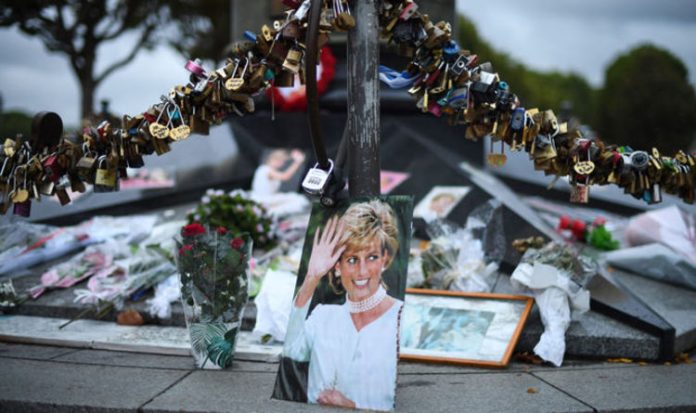[ad_1]
Psychologists argue this traumatic incident left such a scar on the national consciousness that it triggered a “flashbulb” memory.
Princess Diana died on August 31, 1997 after her car crashed at the entrance of the Pont de l’Alma road tunnel in Paris, France.
It is not uncommon for people to remember exactly where they were and what they were doing when they learnt the shocking news.
This could be because it has become a “flashbulb memory”, which can occur after significant incidents.
Flashbulb memories are stored in our minds “as vividly, completely and accurately as a photograph”.
The American Psychological Association say flashbulb memories were first proposed back in 1977 by Harvard psychologists Roger Brown and James Kulik.
They can be triggered by dramatic events, particularly those which occur in public.
Cognitive psychologist William Hurst said: “Every time there’s a public trauma, psychologists run out in the street and capture people’s memories of what happened.
“They did it with the Challenger explosion. They did it with the death of Princess Diana – and we did it with 9/11.
“What makes these events so memorable is the unusual intersection of the personal and the public, so that what becomes salient for you is actually learning about the event, in addition to the facts of it.”
Last year, on the 20th anniversary of the Princess of Wales’ death, the nation took to social media to share their memory of hearing the news.
TV presenter Chris Tarrant was on a flight back from Canada.
The Who Wants to be a Millionaire host said: “There was a sound of crying as news spread around the plane.”
Mirror columnist and then GMTV presenter Fiona Phillips said: “When I was called out of my bed in the early hours 20 years ago to deliver the news on GMTV that Diana had died, I couldn’t believe what I was hearing.
“I fumbled around for a black suit, hoping that somehow the news wasn’t true; that I wouldn’t have to wear it. I wore it.
“I was still barely coming to terms with the shock, the emotion, the enormity of what had happened as I sat there and delivered it.”
Tony Blair, who had been prime minister for just three months when Diana died, remembered being woken up by the police.
Mr Blair said: ”I was woken by the policeman. He was standing at the foot of the bed because I hadn’t heard the phone ring.
“It was an extraordinary shock because I knew her, I liked her a lot.”
Tony Blair later addressed the nation from outside a church in his Sedgefield constituency, where he said: “I feel like everyone else in this country today – utterly devastated.
“She was the people’s princess and that is how she will stay, how she will remain in our hearts and in our memories forever.”
It was a speech which would become famous for articulating the sense of national loss.
[ad_2]







